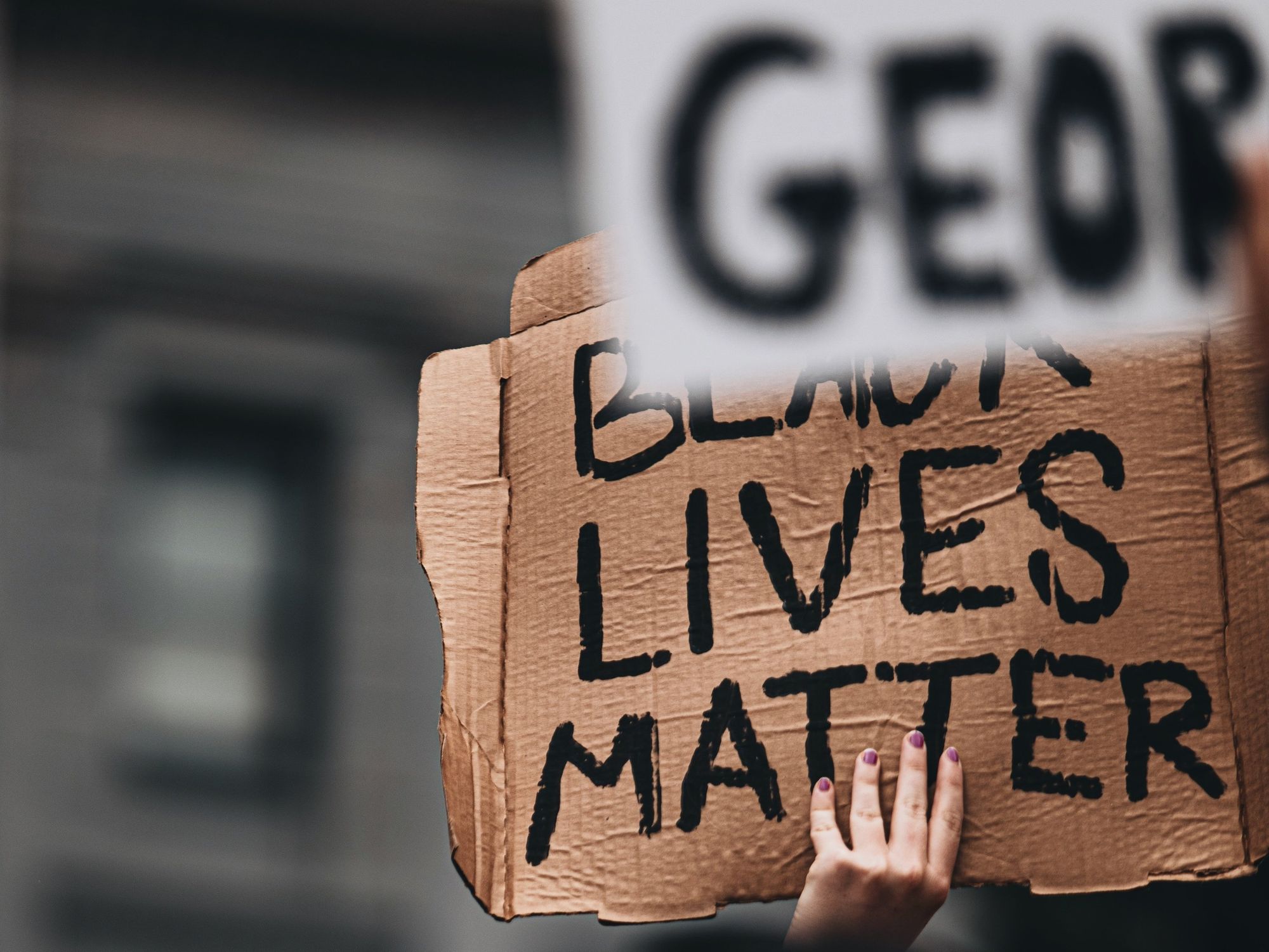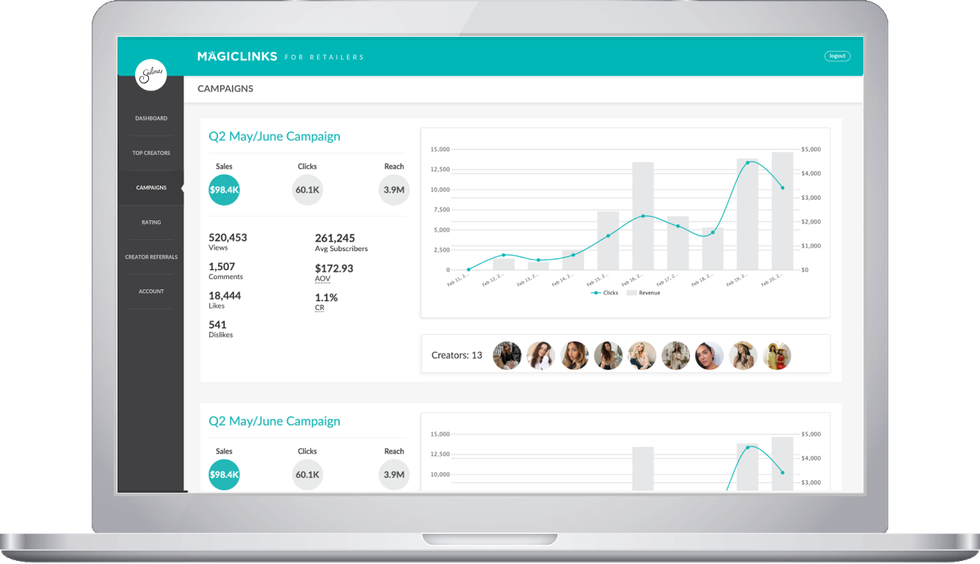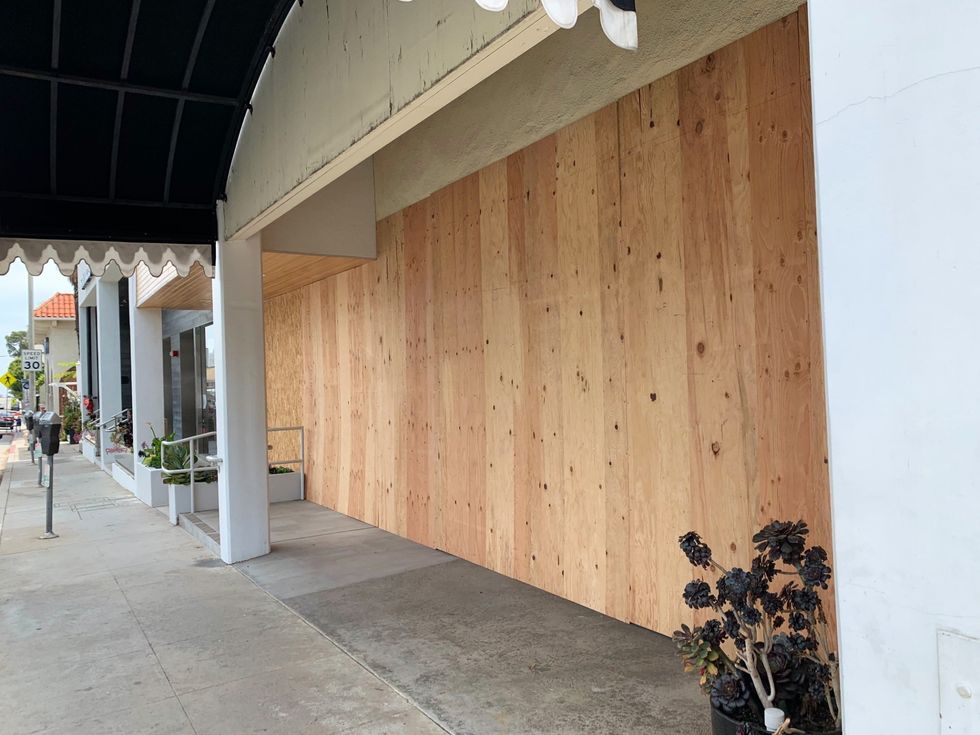George Floyd Protests: Scooters Used as Barricades, LA Under Curfew Again

Here are the latest headlines regarding how the protests around the killing of George Floyd are impacting the Los Angeles startup and tech communities. Sign up for our newsletter and follow dot.LA on Twitter for the latest update.
Today:
- MagicLinks CEO hopes his company's actions will have ripple effects inside and out
- Scooters, just redeployed, are pulled off city streets after becoming fodder for barricades
- L.A. braces for more curfews after a day of peaceful protests
MagicLinks CEO hopes his company's actions will have ripple effects inside and out

Brian Nickerson, CEO of Venice-based MagicLinks, which provides tools to online video creators to help them earn money through e-commerce, sent an open letter this week to his 25 employees and the 20,000-odd creators and brands in his company's ecosystem.
"Dear MagicLinks Community," the letter began. "Black. Lives. Matter. Our collective way of being, of relating, needs to change. Now."
"To move from words to action," as Nickerson put it to dot.LA, MagicLinks will also be donating cash to the NAACP, the Alliance of Californians for Community Empowerment (ACCE) and the People's City Council. The company is also matching employee donations and giving paid time-off to those who feel they need it, for whatever reason.
"But it's more than the moment," Nickerson said. "How do we systematically change this?"
Nickerson wants the actions that MagicLinks has already taken to galvanize further action. One plan his company has is to put together a panel of black and minority creators to raise awareness of systemic biases among brands in casting and promotional decisions.
Nickerson was deliberate in composing the letter and deciding which initial actions to take.
"It starts with listening and trying to empathize as best we can and understanding the fears of the people who are most directly impacted by this," he said. To that end, Nickerson and his team sought to create a safe space for MagicLinks' black employees to share how the current unrest and its precursors make them feel. One employee spoke of having a relative on the East Coast who was recently jailed, but no one in her family knew where. Another described having to occasionally fear for his life, and the nightmare that his absence would bring upon his mother.
Nickerson, who describes himself as "white, male and privileged," then sought feedback from black colleagues about what to put in his letter. In his first draft, he included a personal anecdote about learning how his grandparents had faced their own form of racism. But after consulting with his advisory team, that wasn't the right message.
"This isn't about my experience right now," Nickerson reflected. "It's sitting with the scourge of racism that's been in our country since its founding and just sitting with that and knowing that it exists and asking what we can do to change it."
In his letter Nickerson invokes a Hawaiian prayer, which he wrote "can be used as a tool to heal the racism and prejudice within each of us." The prayer: I'm sorry. Please forgive me. Thank you. I love you.
Response to his letter has mostly been positive, Nickerson said, with a few exceptions. Some clients and partners have threatened to cut ties. Nickerson's initial reaction was to simply write them off, but he has found power in invoking that same Hawaiian prayer in these interactions.
"Those are people that probably need to hear the message more than anyone else," he noted.
MagicLinks' actions in the wake of the ongoing unrest and the COVID-19 pandemic are the culmination of a change of heart in Nickerson.
"I used to think that as a small startup, once we were successful, then we can do right," he said. "I've changed that dramatically: we have to be doing right as we're going. Even if our dollar contribution to certain causes isn't what Facebook or Google can do, it's important to instill that in the culture and DNA of a company."
Nickerson now wants to empower MagicLinks' network of creators to have more social impact, and for his letter to resonate within his team and out to the community of brands and talent.
"Small actions have ripple effects," he said.
— Sam Blake
Scooters, just redeployed, are pulled off city streets after becoming fodder for barricades

In the last two years, e-scooters have become a common sight on city sidewalks. In the last few days they have taken on a new role as tools of resistance since they are light enough to pick up but heavy enough to cause serious damage. The largest company, Bird, has been criticized in the past for a lack of diversity and for avoiding black neighborhoods.
Social media images have shown protestors using scooters to block off city streets in downtown Los Angeles and tossing them into a fire in Paris.
Demonstrator in DTLA made a cordon blocking the road out of Bird scooters pic.twitter.com/aV8c63SG4k
— Anna Merlan (@annamerlan) May 30, 2020
It's really kicking off in Paris now! pic.twitter.com/GPnWJFYlje
— Jerome Roos (@JeromeRoos) June 2, 2020
Companies have reacted by pulling their scooters from cities, according to Mashable. The timing is terrible since companies had just begun to redeploy scooters as cities eased coronavirus restrictions.
Bird's headquarters is not far from where riots broke out in Santa Monica. Employees have criticized the company for a lack of diversity, which was made worse by massive layoffs in March that disproportionately effected minorities. The company's former chief legal officer once said Bird should not put scooters in black neighborhoods like Crenshaw because people might steal them, according to The Verge.
The company's only statement on protests has been this tweet on Sunday:
pic.twitter.com/P1NG3tpQw6
— Bird (@BirdRide) June 1, 2020
L.A. braces for more curfews after a day of peaceful protests

Windows in the upscale Brentwood neighborhood of L.A. were boarded up Tuesday night.
Thousands of people streamed along Hollywood streets that normally teem with tourists. They protested downtown at the foot of City Hall and marched in the San Fernando Valley. The signs read "No Justice No Peace," "BLM," "Stop Killing." A week of national protests over the killing of George Floyd by a Minnesota police officer continued as people of all colors poured into the streets in outrage.
Frustration over years of police brutality directed at black men and continued inequities in education, health and housing has fueled a national rage. It's also provoked some of America's top corporate players from Nordstrom to TikTok to respond in solidarity with the Black Lives Matter movement. Companies across the music industry, many whose top executive ranks are devoid of black Americans, staged a 'Blackout Tuesday', to reflect and hold conversations about how to support the black community. Other businesses outside the music industry followed suit.
At the same time, the protests seemed to grow even larger after a weekend that was marred by vandalism and looting, across the country as fringe groups broke into stores. Thousands have been arrested, the Los Angeles Times reported, as vandals ravaged some of the toniest neighborhoods including Santa Monica, downtown and Beverly Hills, spurring the national guard to be called in.
But on Tuesday afternoon, it appeared that peaceful protests reigned across the region as a concerned Los Angeles County and city issued curfews for 6 p.m. until 6 a.m. Wednesday.
"We are keeping the curfew in place tonight to protect everyone's safety and help our first responders keep the peace," said Mayor Eric Garcetti.
Exceptions to the curfew are in place for emergency responders, people going to and from work, and anyone traveling to and from participating in voting. There are elections in Pico Rivera and Commerce.
Santa Monica and Beverly Hills, which saw extensive damage in the previous days, set a citywide curfew from 1 p.m. until 5:30 a.m. Wednesday. Santa Monica's curfew is from 2 p.m. until 5:30 a.m. on Wednesday.
"We continue to grieve for the losses to our businesses and neighborhoods on Sunday, and we continue to be outraged over the death of George Floyd and the unacceptable persistence of institutional racism," said Santa Monica Mayor Kevin McKeown in a statement. "Nonetheless, on Monday we showed that we can learn from tragedy, get back up, and commit ourselves to a better city."
— Rachel Uranga
- Snap and Twitter reportedly used by ill-intentioned protesters to ... ›
- George Floyd Protests: L.A.'s Tech Community Reacts - dot.LA ›
- Santa Monica, Beverly Hills announce 1 pm curfews - dot.LA ›
- George Floyd Protests: a16z Launches Fund For Diverse Founders; Snap Drops Trump From Its Discover Feature - dot.LA ›
- Disney will donate $5M to Social Justice Groups - dot.LA ›
- George Floyd Update: Los Angeles County and City Lift Curfews - dot.LA ›
- George Floyd Protests: L.A.'s Tech Community Reacts - dot.LA ›
- George Floyd Protests: Why This Time Feels Different - dot.LA ›
- George Floyd Videos Were Watched Over 1.4 Billion Times - dot.LA ›





 Image Source: Blackbird
Image Source: Blackbird